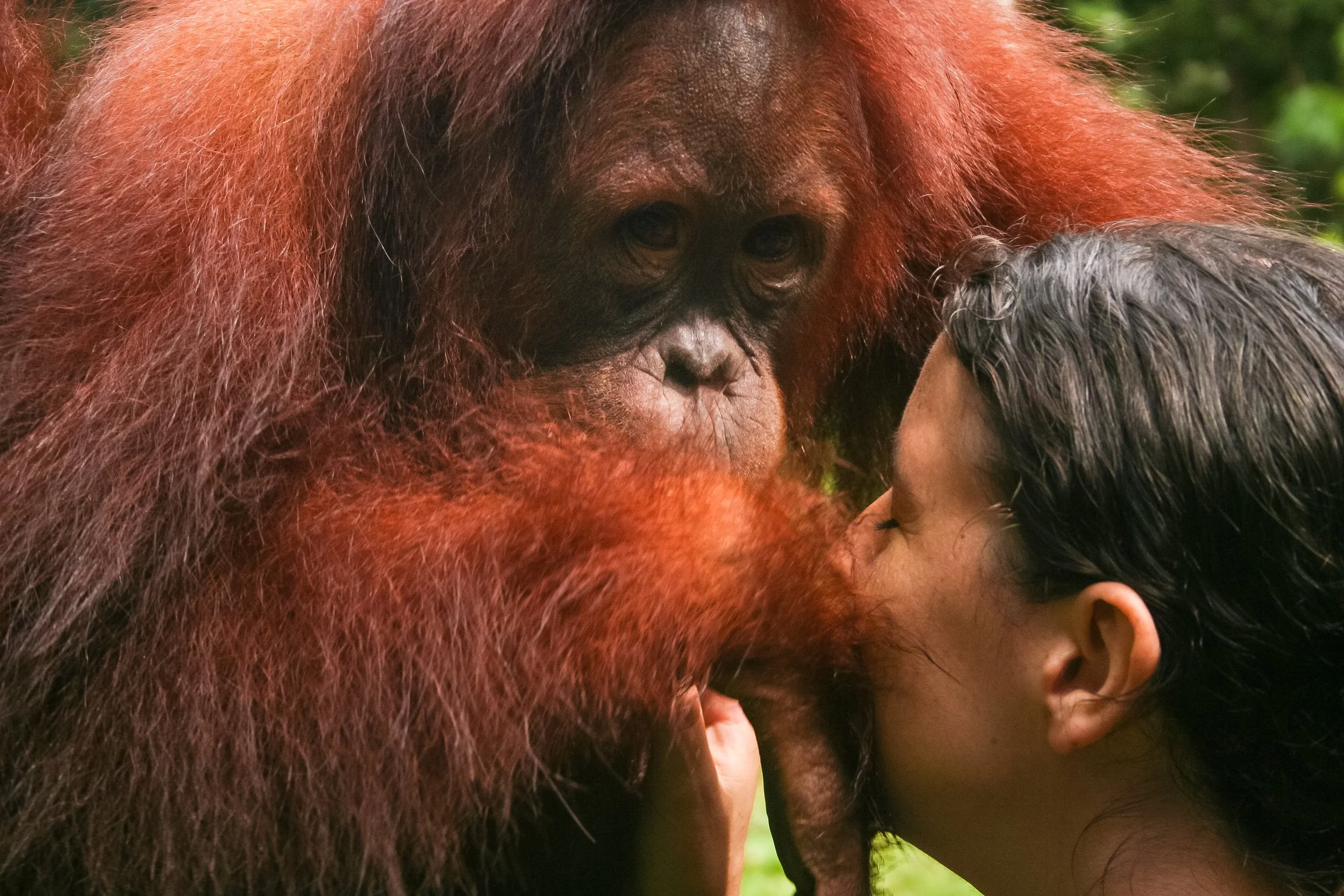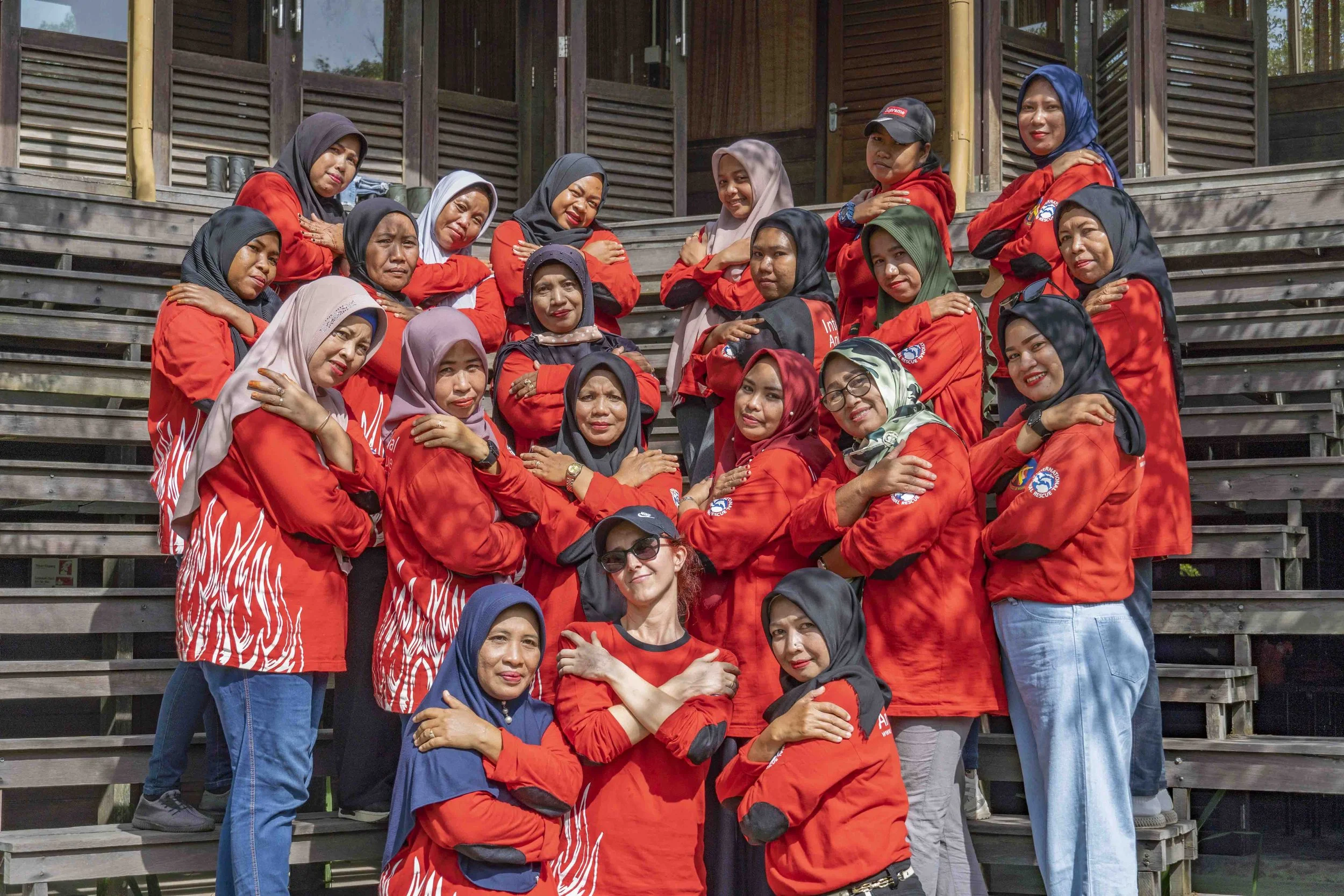Leading with Empathy: Kylie Bullo and the Women-Powered Future of Conservation
By Jenna Taskin
Get ready to meet a conservation crusader whose dedication to protecting endangered species is truly awe-inspiring.
Kylie Bullo, conservation project manager of The Orangutan Project, has spent more than two decades enhancing forest conservation and safeguarding the survival of the critically endangered orangutan population in Borneo and Sumatra. She has been the driving force behind ensuring their survival by facilitating their reintroduction into the wild and promoting better welfare for these majestic creatures.
But Kylie's work doesn't stop there—she's also a staunch advocate for promoting gender equity and empowering women in conservation. Her work with the first-ever women-led ranger team, known as “The Power of Mama,” underscores her unwavering commitment to promoting gender equity and protecting the planet.
In this exclusive interview, we chat with Kylie about her work with The Orangutan Project, her passion for the Power of Mama project, and why she believes empowering women are key to conservation efforts.
In your book, “Reaching for the Canopy,” you described the experience of releasing Temara, the first ever zoo-born orangutan, into the wild. How did this experience impact you personally, and what lessons did you learn from it that have influenced your conservation work since then?
Preparing and releasing Temara into the wild will always be one of the most special moments of my life. As much as I loved working with the orangutans at the zoo, I knew in my heart that they didn’t belong in captivity. In 2005 I used all my annual leave to spend six weeks at a release site in Sumatra to assist a young, traumatized male orangutan named Tatok with his rehabilitation. Tatok was a very traumatized orangutan and had many negative stereotypic behaviors including hugging himself and rocking back and forth. He was a lost soul.
Under my guidance and care, Tatok’s confidence and forest skills improved dramatically, and because of this, Leif Cocks, founder of The Orangutan Project, and I began to discuss the possibility of releasing one of the Perth Zoo orangutans. We decided on Temara based on her age and the fact she would have been leaving her mum in the wild, her intelligence, and her independence. It was a huge undertaking, and we started preparing Temara about a year before her release. This included adjusting her zoo diet to include more natural foods. We also adjusted her nesting material, so she only had leaves and branches to make nests from rather than hessian sacks and shredded paper. She was given access to an exhibit with a large ficus [fig] tree in it so she could practice her climbing and nest building skills. We also started saying some key Indonesian phrases to her since her long-term trackers would be Indonesian.
Temara’s training and release reinforced that orangutans could learn and adapt to live in the forest, even if they have been in captivity for years and they should be given that chance. That is why The Orangutan Project supports numerous orangutan rehabilitation centers and now also runs two of our own with our alliances, The Sumatran Rescue Alliance and the Borneo Rescue Alliance. Every orangutan life matters, and we want to ensure that as many as possible get the chance to return to the jungle they were taken from.
Can you tell us more about the Power of Mama ranger teams and how they are benefiting both the environment and local communities?
The inspiring Power of Mama project is spearheaded by the Ministry of Environment and Forestry of The Republic of Indonesia and is supported by Yayasan International Animal Rescue Indonesia (YIARI). The Orangutan Project is also proud to provide vital funding to this program. The expected outcomes and benefits of this project are to protect wildlife, empower women, and uplift forest-edge communities; restore peatlands to their natural waterlogged condition, reducing Karhutla (forest fire) events; and safeguard orangutans by eliminating fire risks in vulnerable forests [among a number of other initiatives].
What are some of the challenges the Power of Mama (PoM) ranger teams face in their work, and how do they overcome these challenges?
The work undertaken by the PoM ranger teams can be very physically demanding. They work in all conditions, from heavy rain to very hot weather. Undertaking patrols both by foot and motorbike can be challenging, especially when it has been raining and the tracks are muddy. Fighting fires can, of course, be scary and physical work. These [women] overcome these challenges by supporting and encouraging each other. They have also received training and are proud to take on these new tasks and learn new things.
Do you believe women bring unique perspectives or approaches to conservation work that differ from men? If so, how do these perspectives or approaches benefit conservation efforts?
Yes! I feel that women often have more empathy and can be better communicators. Many of the women in the PoM teams have expressed that they want the orangutans to be safe and be able to raise their babies safely in the forest. I think this highlights our maternal and protective instinct toward other mums and babies and is showcased by the name ‘Power of Mama.’
They have also said that they want their grandchildren to be able to see these amazing forests and the animals in them. There is real heart and caring there and I think this leads to long lasting effort and commitment to the conservation cause.
The Power of Mama rangers bring families together and teach children from a young age about protecting the environment. In many countries, including Indonesia, it is relatively new for women to work in conservation. These women have so much to offer and are passionate and enthusiastic about helping to protect their environment and local villages.
Kylie is optimistic about the future of women in conservation as more girls enroll in science courses in countries like Indonesia, supported by initiatives such as The Orangutan Project's Orangutan Caring Scholarship program. The program aims to enhance the long-term survival of the Sumatran orangutan while increasing the number of female staff employed in the field and encouraging them to take on leadership positions, inspiring other women and their daughters.
Instagram: @TheOrangutanProject Website: TheOrangutanProject.org

